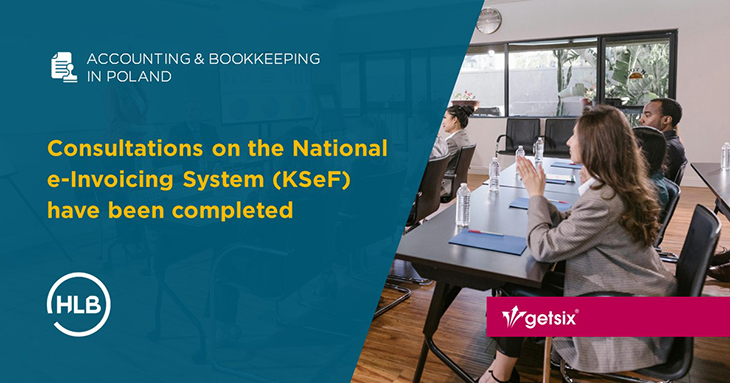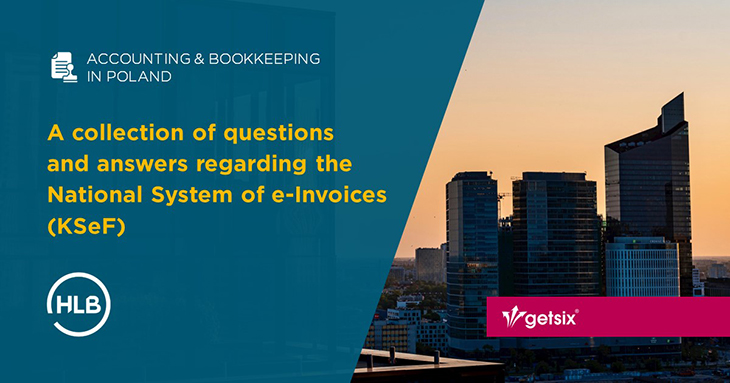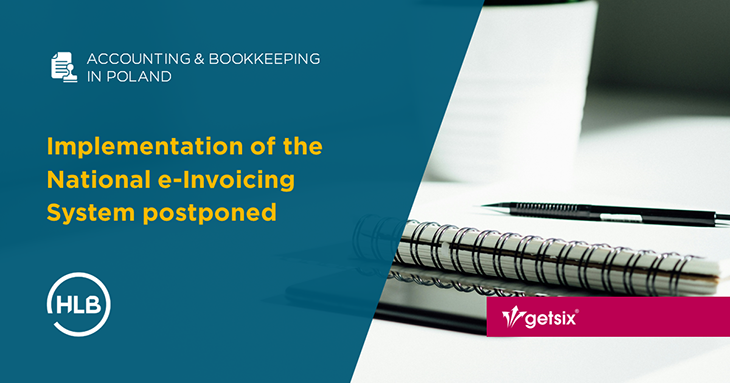Overview
Related pages
- Accounting in Poland
- HR & Payroll outsourcing in Poland
- Tax Services in Poland
- Legal Services in Poland
- Business Services in Poland
- Shelf companies - ready-made companies in Poland
- Branch or representative office
- Company Registration
Please feel free to contact us via our contact form:
We are supporting business in Poland for more than 10 years. Our experience and international contact network will help you in achieving your goals.
The Polish Value Added Tax Act of 11 March, 2004 (the VAT Act) is based on EU legislation, and in particular, on the provisions of Directive 2006/112/EC on the common system of value added tax (the VAT Directive).
The main VAT rates applicable in Poland are as follows:
Standard VAT rate: 23%
Reduced VAT rate – applied to supplies of certain food items, medical products, hospitality services and community housing: 8%
Super-reduced VAT rate – applied to supplies of certain food items, such as bread, dairy products, meats, and selected publications: 5%
VAT in international trade - supply of goods
Taxpayers selling goods to taxpayers registered for VAT in EU states may apply the 0% VAT rate as part of the intra-community supply of goods.
The 0% VAT rate also applies to exports of goods defined as the export of goods from Poland outside of the European Union in performance of taxable activities.
In order for the 0% rate to be applied in exports, the taxpayer must have appropriate customs forms stating that the goods have exited the territory of the European Union.
In the event of purchasing goods transferred from an EU Member State to Poland, the Polish taxpayer must ensure self-assessment of VAT.
This means that the taxpayer should disclose both the output VAT resulting from the taxable activity and the input VAT (due to the fact that this activity constitutes a ‘purchase’ for the purpose of its business). Consequently, as a rule, intra-community acquisitions of goods is a VAT-neutral activity for the Polish taxpayer (the amount of output VAT equals the amount of input VAT).
Import of goods subject to VAT in Poland means bringing goods from outside the European Union into Poland. In such cases, the import output VAT is typically paid to the customs office that clears the imported goods. Furthermore, a taxpayer that has paid VAT to the customs office may deduct this tax on the basis of the customs document received. In select cases, it is possible to avoid paying VAT to the customs office and settle the import of goods in a VAT return (postponed accounting system) similarly to the situation that occurs in the case of intra-community acquisition of goods. However, the implementation of this solution applies solely to entities using the simplified customs procedure.
The VAT exemption applies, among other things, to imports of goods subject to inward processing, goods subject to temporary clearance with full customs duty exemption.
VAT in international trade - provision of services
In the case of cross-border services, a VAT obligation in Poland may arise if the place of taxation of a transaction in accordance with the VAT Act, is Poland.
In this respect, the Polish VAT Act complies with the VAT Directive – for services provided between taxpayers (on a B2B basis) with their registered office/place of residence/permanent place of business in different countries, the primary place of taxation is the country of the registered office/place of residence/permanent place of business of the entity purchasing the service. The opposite applies to services provided by a taxpayer to a non-taxpayer entity (B2C basis).
As a result, under the fundamental principle, VAT will be payable in Poland on service transactions between taxpayers from different countries only if the service recipient has its registered office/place of residence/permanent place of business in Poland. However, in the case of services provided by a Polish taxpayer to a non-taxpayer entity, VAT will be payable in Poland if the service provider has its registered office/place of residence/permanent place of business in Poland.
There are several exceptions to the above rules – for instance, the place of taxation of real property-related services is, in each case, the place (country) where the property to which the service is related is located.
VAT exemptions
The VAT Act contains a list of activities that may be exempt from VAT. Typical VAT-exempt activities may include (no optional taxation of these services):
- financial services (lending, maintaining bank accounts, currency exchange), other than leasing, factoring and consulting;
- insurance and reinsurance services;
- certain medical services;
- some educational services;
- welfare services;
- social security services;
- some culture and sports-related services.
The Polish VAT Act also introduces a VAT exemption for supplies of certain real properties, however, in certain circumstances, taxpayers may choose to pay VAT on these supplies.
VAT deduction and refund
Taxpayers may reduce the amount of output VAT by the amount of input VAT when purchasing goods and services, provided that the purchases are related to a sale subject to VAT.
In the case of input VAT concerning both purchases related to activity eligible for a deduction (taxed) and not eligible for deduction (VAT-exempt), the taxpayer is entitled to a partial deduction of VAT.
In certain cases the right to deduct input VAT is subject to certain limitations, e.g. in case of purchase of a passenger car which is not used exclusively for business activity only 50% of the input VAT paid at the time of purchase may be deducted.
The VAT Act also prohibits the deduction of input tax on the purchase of hotel services.
The surplus of input tax over output tax is, as a rule, refunded within sixty days from the date of filing an appropriate VAT return. The VAT refund period may be shortened to 25 days if additional criteria are met.
If the taxpayer did not make any sales or taxable sales outside Poland during the accounting period, the taxpayer may apply for a tax refund within 180 days of filing the VAT tax return.
Tax refunds are, as a rule, made to the bank account indicated by the taxpayer.
VAT Registration
Entities that wish to conduct activities subject to VAT in Poland must file a registration form before the date of the first taxable transaction. Taxpayers who intend to conduct intra-community transactions must be EU VAT registered.
Entrepreneurs whose annual sales do not exceed 200,000.00 PLN are exempt from VAT. However, they may voluntarily register for VAT and charge VAT on their business activities.
In order to register for VAT purposes in Poland, entities without a registered office, permanent place of residence or place of business in the European Union must appoint a tax representative. Tax representatives are responsible for the tax liabilities of the taxpayers they represent.
VAT Returns
Taxpayers file monthly VAT returns by the 25th of the month following the month in which the tax obligation arose, or quarterly, by the 25th of the month following the quarter in which the tax obligation arose. As a rule, VAT is paid to the tax office by the date specified for filing the relevant VAT return.
Along with the tax return, taxpayers are required to send the tax offices a JPK file containing a record of all sales and purchases of goods and services.
Taxpayers conducting intra-community transactions and providing services (for which the place of provision is determined in accordance with general principles) to EU taxpayers are required to file monthly recapitulative statements. Furthermore, taxpayers are also required to file statistical information (INTRASTAT) on intra-community commodity transactions.
Related parties
In the case of transactions between related parties, tax authorities may determine the taxable amount in accordance with the open market value if it turns out that the existing relationships affected the determination of the consideration for the supply of goods or services and one of the parties to the transaction is an entity that does not have the right to deduct VAT.
The right to determine the tax base in accordance with the market value is given to the tax authority if there are family, capital or employment ties between the counterparties.


















